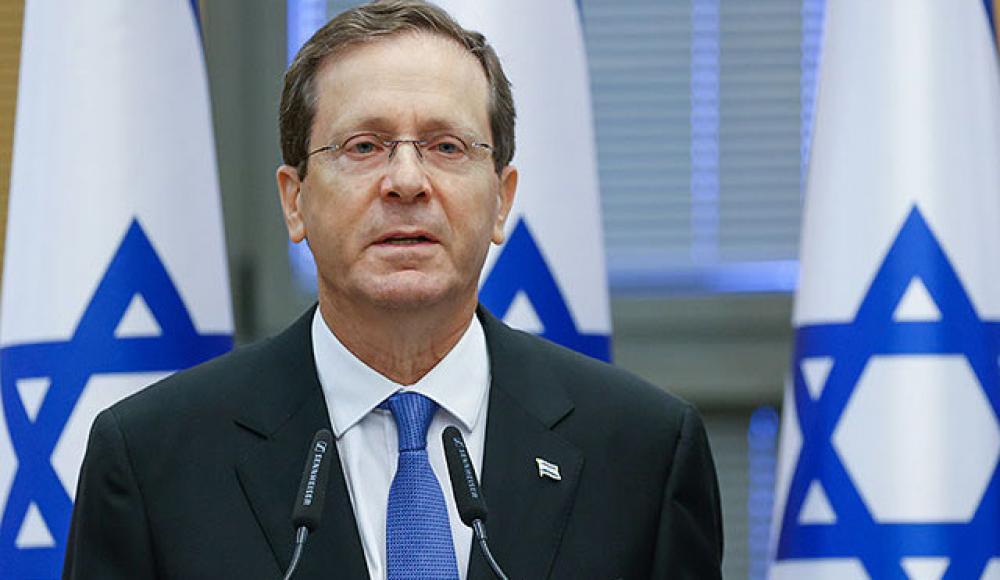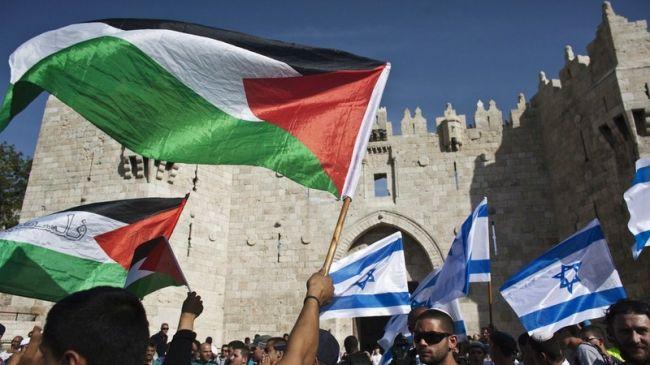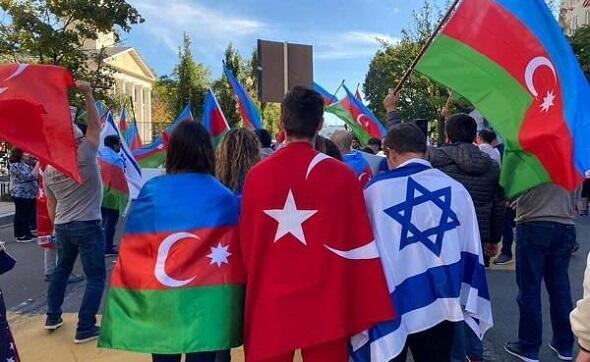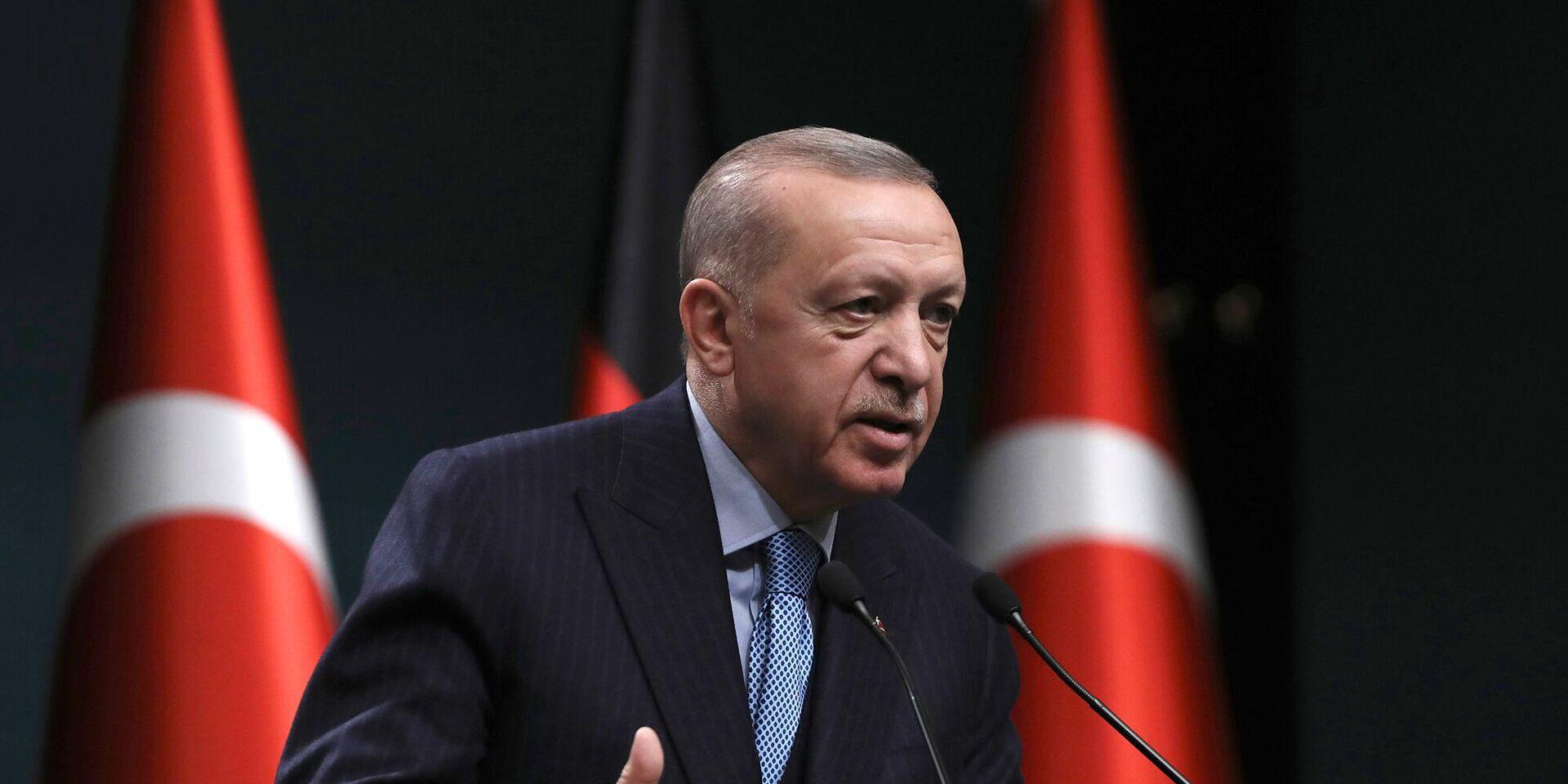Türkiye-Israel: Convergence of positions without shifting priorities Review by Caliber.Az
By all appearances, the emerging warming in relations between Israel and Türkiye is taking more and more real shape. There are plans to return ambassadors and general consuls to the capitals and fully restore diplomatic ties. According to Anadolu Agency, Tel Aviv welcomed the two countries' agreement to restore full diplomatic relations.
"I highly appreciate the decision to raise diplomatic relations with Türkiye to the highest level. This is an important event that will improve economic relations, promote mutual tourism, as well as friendship between the Israeli and Turkish peoples," Israeli President Isaac Herzog wrote on social media.

According to The Times of Israel, Prime Minister Yair Lapid also agrees that renewed relations with Türkiye would be an important contribution to regional stability.
Of course, Türkiye also views rapprochement with Israel positively, but in matters of principle, the government intends to keep to its foreign policy priorities. In any case, the Minister of Foreign Affairs of Türkiye Mevlut Cavusoglu, voicing the Turkish-Israeli agreement on an exchange of ambassadors in order to normalize relations, unequivocally stated that Türkiye will continue supporting the Palestinians. Incidentally, at talks with his Palestinian counterpart Riyad al-Malik in Ramallah in May this year, Cavusoglu also promised that Ankara will not stop supporting the Palestinians. So, while promoting dialogue with Israel, Türkiye is not going to reconsider its position on the Palestinian issue. According to the official position of the Turkish leadership, Ankara's relations with Tel Aviv, as well as its support for Palestine in the conflict with Israel, are two completely different issues.
Cavusoglu later reiterated this political thesis ahead of talks with Foreign Minister Yair Lapid at the Israeli Foreign Ministry headquarters in May of this year. Lapid, speaking at a joint news conference after the meeting, recalled that Türkiye was the first Muslim country to recognize Israel back in 1949.
It is safe to say that these talks gave a start to a renewal of dialogue and the building of a new format of Turkish-Israeli relations. Along with this, the Turkish side needed to remind about Ankara's principled position on settling the Israeli-Palestinian conflict on the basis of the two-state principle and expressed hope that the normalization of relations between Türkiye and Israel would bring this long-standing problem closer to a solution. It is likely that in the matter of settling the Israeli-Palestinian conflict Ankara will use the policy of "soft power", choosing necessary diplomatic tools to achieve its goals. Türkiye's wise and balanced policy, on the one hand, confirms its adherence to principles based on the rules and norms of international law, and on the other hand, is aimed at a peaceful resolution of long-standing conflicts that pose a real threat to the stability and security of the region.

By the way, Türkiye has demonstrated a similar policy, assisting and actively participating in the settlement of the long-standing Karabakh problem, providing serious support to Azerbaijan within the framework of international law, allowing Baku to solve the issue of de-occupation of the ancestral territories by force. At this post-conflict stage, which has changed the balance of power in the region, Türkiye is committed to the normalization of Armenian-Azerbaijani and Armenian-Turkish relations. Official Ankara, basing itself on national interests, is ready to restore diplomatic relations with Armenia, which it broke off because of the occupation of Azerbaijani territories. As we can see, Türkiye's consistent policy is aimed at the implementation of the peace process, and what is particularly important to note is that it is also the initiator of the diplomatic dialogue with Israel. It was Türkiye that took the first step to restore the once friendly relations. Recall that in 1996 a free trade agreement was signed between Türkiye and Israel, which resulted in the mutual cancellation of customs duties on more than 200 goods. Türkiye's annual exports to Israel rose from $805 million to $2.391 billion between 2001 and 2011. During the same time, the annual value of Israeli exports to Türkiye increased from $529 million to $2.057 billion. Meanwhile, as The Times of Israel notes, the current decision to resume diplomatic relations after so many tense years was taken by the parties after a telephone conversation between Lapid and Erdogan.
At the same time, the rapprochement in Israeli-Turkish relations is to Azerbaijan's advantage because Türkiye is a brotherly country and Israel is a reliable strategic partner. Therefore, the planned thaw in Israel-Türkiye relations is aimed at the interests of all three countries. In general, the revival of Israeli-Turkish relations is promising in terms of further trilateral coordination between Baku, Tel Aviv, and Ankara.

However, there is another important nuance to regional politics. Warming relations between Tel Aviv and Ankara are far from in the interests of Tehran, which has a hostile attitude towards Israel plus strained relations with Türkiye. Although judging by the results of the recent meeting of the leaders of Russia, Türkiye, and Iran in Tehran, there may be some movement in the Turkish-Iranian direction as well, even despite the whole range of disagreements between them in the Middle East, in particular in Syria. And this is most likely the result of Türkiye's foreign policy, its desire to normalize relations primarily with its regional neighbors, including Iran.
Recall that hints from the Turkish side about rapprochement with Iran surfaced back in 2016 during a two-day visit of then Turkish Prime Minister Ahmet Davutoglu to Tehran. "Türkiye and Iran should develop a 'common perspective' to overcome instability, threats of terrorism, and ethnic and sectarian conflicts in the region," Turkish Prime Minister Ahmet Davutoglu made an optimistic statement at a joint press conference with Iranian Vice President Eshaq Jahangiri following talks in Tehran. The two sides discussed, among other things, the possibility of increasing the volume of mutual trade to $30 billion, taking into account the post-sanction period of the IRI. The Western sanctions on Iran have not been lifted to this day, but the fact that Türkiye did not join them brought additional bonuses to Ankara's diplomatic piggy bank, which, logically, should boost Iran's credibility with Türkiye. Therefore, we can assume that after the final normalization of relations with Israel, Türkiye's consistent foreign policy may be aimed, among other things, at finding some kind of compromise solutions to the Israel-Iran problem.

Given President Erdogan's mediation initiatives aimed at resolving complex conflicts, particularly the Russian-Ukrainian conflict, as well as his efforts in the Afghan peace talks (between Pakistan and Afghanistan), it would be premature to rule out such a possibility. Recall that in 2019, President Erdogan announced Türkiye's intentions to mediate in Afghanistan-Pakistan talks to end 17 years of armed confrontation between the Afghan government and the Taliban. Ankara has thus once again taken mediation initiatives in the Greater East, actually challenging Washington. This is one example of how Türkiye, even as a NATO member, promotes a peaceful agenda in the region and the world, even if these initiatives run counter to the interests of the mightiest powers.








